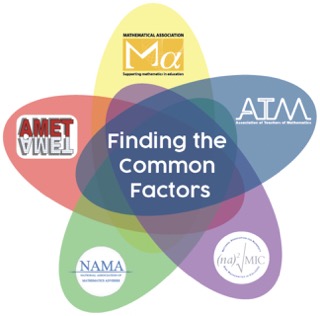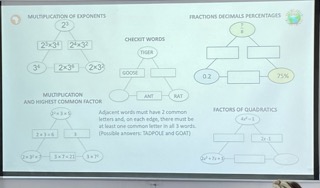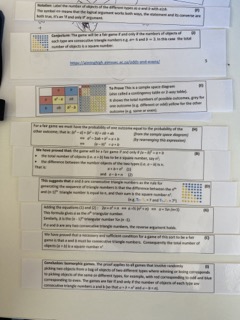Previous sessions: Monday (am) Monday (pm)

Day 2…last night was fun (and late). After dinner it was time for the associations to hold their AGMs. I attended the ATM one this year; I have to alternate if the AGMs are timetabled together.
Not ideal, but to be fair to the organisers, I don’t see how else it could be managed in such a short conference. As ever, it was pretty lively, with passionate views expressed on both sides concerning the proposed merger of the subject associations. I guess there was a similar story in the other AGMs but I don’t know.
Afterwards it was time for the quiz. The organisers always put a huge amount of effort into the quiz, and this year was no exception, with several new and innovative rounds, such as one with cryptic clues whose answers were all London Underground stations, and an ‘only-connect’ card sort round.
Amazingly, we didn’t come last, and perhaps even more amazingly Jo Morgan and Ed Southall didn’t win…
Drinks in the bar followed, though by previous conference standards it was a relatively civilised affair – I got back to my room just after midnight, having sunk a few beers and tried unsuccessfully to get yet another Rubik’s Cube inside a bottle – I’m reasonably certain those two things were entirely unrelated.
This morning having thrown everything into my suitcase I got ready to deliver my own session on reasoning in every lesson. I wanted to go to Jo Morgan’s session, (and naturally she was keen to go to mine) but being mathematicians we realised that there was a flaw in that logic so decided to run our own sessions after all…
After coffee I went to a session run by Caroline Ainslie and Toni Beardon of AIMSECC, both of whom will be pretty familiar faces to regular conference-goers. For many years they have been doing amazing work with teachers in South Africa, and they introduced us to some great games. The first one was an extension of ‘Rock, Paper Scissors’ which Toni referred to as ‘Rock Paper Scissors Fire Air Water Sponge’. The nice variation was that each time you lost you had to move your feet a step wider. Very funny way to add a bit of jeopardy to the whole procedure!
We got quite excited on our table when we realised that this task could actually be about the diagonals on a polygon, or the classic handshake problem, and the idea that it was only possible to create a ‘fair’ version of the game if there were an odd number of items all with equal chances of winning and losing.
The next game we were shown was a clever spin on the jumping frogs problem, but with three sets of frogs rather than 2. Two variations: the first had three frogs along each side of an equilateral triangle (with an empty space in each corner), while the second had the frogs in three spokes radiating out from a single central empty space. This generated a lot of debate on our table. I can see myself using this in the near future.
Third on the list was a good use of the age-old puzzles that Toni referred to as ‘Checkit’. If a picture is worth a thousand words, this may help:

The rule for filling them in was that the rectangles must contain the total of the two adjacent ovals. We liked the idea that the rule could be changed, and although my photo isn’t that clear, you can probably make out that there are lots of ways to use this, some of them quite complex, and there was even a literacy version.
Our table got so engrossed in working on a specific variation that we nearly missed the next game – ‘Odds and Evens’. Luckily there was a link. In a nutshell, the idea was that one player is ‘odd’ and the other is ‘even’. Two random numbers are drawn from a bag – if the total is odd, then the player who is ‘odd’ wins a point, etc.
“Is this a fair game?” was what we were asked to think about, and like the previous games, this one felt as though there was plenty of room for developing the mathematics further. Isomorphism and algebraic proof were part of our discussion…I LOVED the idea of doing a card sort of the proof of the relationship required between the number of even and odds:

Next up: Gomoku – here are the details. We didn’t play this one, just had a look. We also saw but didn’t play a variation called ‘Five in a Line Bingo’ – see the link for details.
Next we looked at something called The L Game – a deceptively simple blocking game. Toni explained that this one was not on the website but was available in her book on Mathematical Thinking. It looks good to me – full of CPD ideas for staff development.
Finally, Caroline mentioned the Global Maths and Science lesson taking place on 10th October 2023. Find out more here.
This was a genuinely great session – brain is now full again. Time for lunch…
